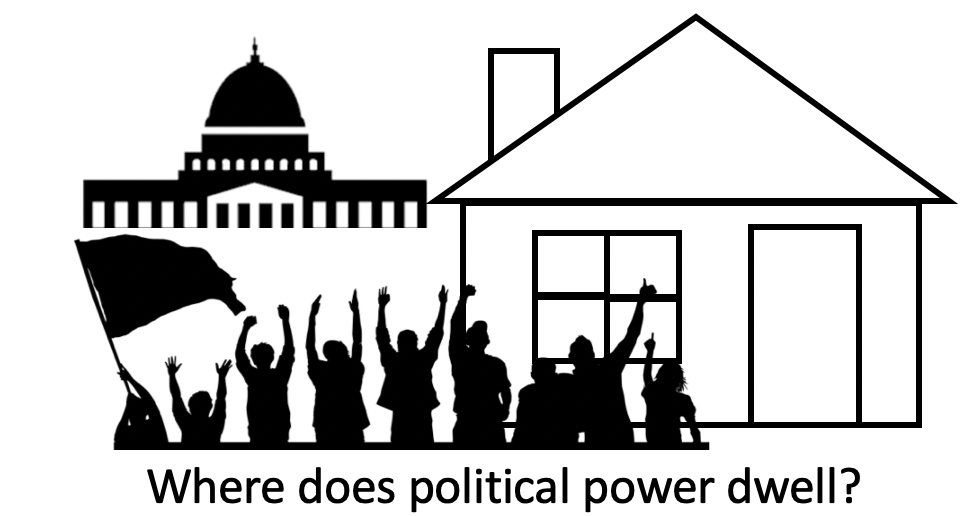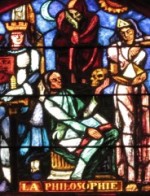Protesters have targeted the private homes of public officials. This is dangerous and misguided. It risks violence and misunderstands political power and political protest.
In Idaho last month, after a woman was arrested for protesting COVID-19 restrictions, activists protested at the home of the cop who arrested her. Last week in Fresno, California, anti-stay-at-homers protested at the apartment of a city council member and at the home of the mayor. Also last week, a protest was planned at the home of California’s governor.
There is symbolic value in protesting “stay-at-home” orders at the homes of public officials. And people have a right to protest on sidewalks and city streets. But these protests primarily seek to intimidate public officials. And they are often merely opportunistic. The Sacramento protesters explained this in a Facebook discussion. One of the governor’s neighbors said the protesters should protest at the state capital. An activist replied, “They won’t allow us to protest at the Capital…that’s the whole point of this.”
But a defiant protest at the Capital would be much more impactful, especially if the protesters got arrested for exercising their First Amendment rights. In fact, 32 protestors were recently arrested in Sacramento for doing just that.
Courting arrest is the point of civil disobedience as Thoreau explained, in his influential essay on civil disobedience. When the law is unjust you should disobey it, Thoreau said, and willingly go to jail. He wrote, “Under a government which imprisons any unjustly, the true place for a just man is in prison.”
This idea influenced Gandhi and Martin Luther King, Jr. The point of civil disobedience is to break unjust laws civilly and justly. To be jailed for doing the right thing draws attention to the injustice of the law and the system that executes it.
But protesting at the homes of public officials does not accomplish this systematic goal. By focusing on the private homes of public officials, the legal system is ignored, which is where the real power lies. Individual officials do not make laws, systems do.
Some public officials may in fact disagree, in private, with the policies they execute in public. But their duty is to execute the law. The Idaho cop didn’t make the law. He only enforced it. Don’t protest the cop. Protest the law.
Mayors and governors have more power and discretion. But they are not dictators. They inhabit a bureaucratic system. That’s why the proper place to protest is at city hall or the state capital. Protesting where systems of power reside draws attention to policy problems.
A similar mistake is made by anti-Trumpers who have assailedTrump staff and cabinet member at restaurants and other non-official places. But a person at a restaurant is not acting in an official capacity. Politicians, of whatever stripe, have a right to be off-duty.
The tendency to personalize the political reflects our growing inability to distinguish between public and private. Privacy has eroded in the era of social media and a 24-7 work-world. Folks who lack a sense of privacy don’t appreciate the distinction between public roles and private persons serving in those roles. But without that distinction everything becomes political and nothing remains of private life. When the distinction between policy and personality is effaced, life becomes more polarized and less civil.
Finally, let’s note that protests at private homes are strategically misguided. Such protests tend to turn off potential sympathizers. The goal of political protest should be to generate outrage and empathy among possible supporters. But a protest at a home or at a restaurant defeats that purpose by making the protestors appear to be vindictive bullies. Public protests and civil disobedience are more effective at persuading others to see the justice of one’s cause.
Peeved protesters may get a thrill from demonstrating at a politician’ domicile. But their anger is misdirected. The official at home is not the problem. Rather the problem is what happens when the official is at work. These protesters would be more effective if they were informed by the history civil disobedience and by a more systematic conception of political power.




 Many of us wish we had better choices. For long decades, we’ve wished for better choices all the way back to when Romney and the Bushes were running things.
Many of us wish we had better choices. For long decades, we’ve wished for better choices all the way back to when Romney and the Bushes were running things.
